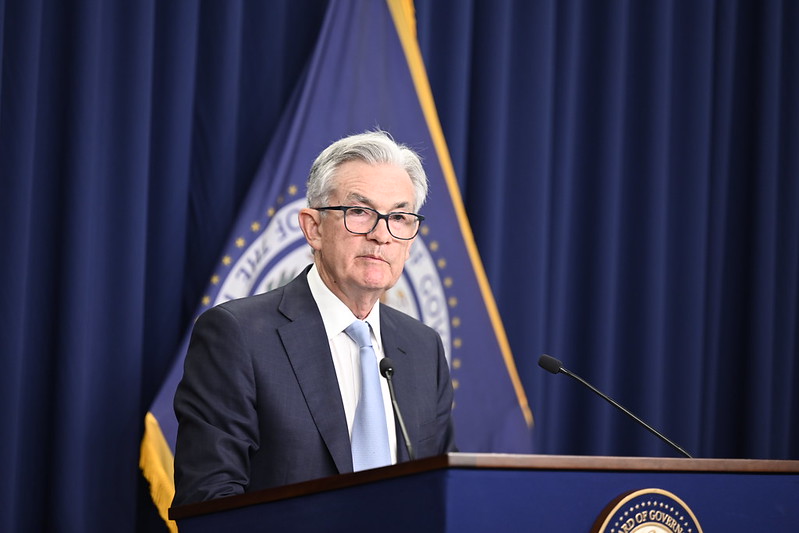At the 2025 Jackson Hole Symposium, Fed Chair Jerome Powell addressed the effects of President Trump’s tariffs on the US economy.
He noted that the tariffs are already pushing up consumer prices and expects the impact to continue over the next few months.
Powell called it “reasonable” to see this as a one-time lift in prices rather than a long-term inflation problem.
This marks a shift from earlier Fed concerns, when the tariffs now at their highest average level in a century, were seen as a potential threat to the 2% inflation target.
Powell said the labor market is showing unusual swings, with risks on the downside. That, he noted, could keep tariff-driven price increases from turning into lasting inflation.
Softer job growth and a fragile employment picture make it less likely that the tariffs will spark persistent price pressures. He struck a cautious tone, acknowledging the inflation risk from tariffs but pointing out that a weak labor market helps offset it.
Powell also stressed that the Fed will stay data-driven, watching new economic indicators, especially on jobs, before making further moves.
Powell’s speech today: Rate cuts on the table
Powell also weighed in on the broader economy, noting that inflation remains high but is showing signs of easing.
He didn’t commit to any immediate rate cuts, but suggested that with a softening labor market and inflation risks under control, looser policy could be on the table soon.
The Fed’s current tight stance might give way to cuts if downside risks grow.
His remarks came as markets priced in a near-term rate reduction, with many investors expecting a quarter-point move in September to ease financial conditions.
Powell stressed that Fed decisions are guided strictly by economic data, not politics. The remarks appeared to push back at growing criticism from the Trump administration, which has called for his resignation and said the Fed acted “too late” on rates.
Powell reiterated the Fed’s independence and its focus on the dual mandate of keeping inflation in check while supporting maximum employment.
‘Fed needs a flexible approach’
Powell emphasized the need for flexibility in the Fed’s approach as the economy keeps shifting, with global pressures and political tensions making growth uncertain.
Tariffs are adding to prices, but the labor market isn’t strong. Powell said that could stop inflation from running too high but didn’t promise anything, just assured that the Fed is watching the numbers.
He kept returning to the same point: data will guide any moves. The overall message was careful, trying to keep inflation in check while noting that jobs aren’t as solid as they used to be.
At the Jackson Hole Symposium, Powell gave a mixed take. Tariffs are pushing prices up, but he sees the effect as temporary. Job growth is soft, which should keep inflation from spiraling.
He left the door open for rate cuts if needed. Overall, his message balanced inflation concerns with a weak labor market, giving markets a rough sense of where the Fed might move next.
The post Jackson Hole Symposium: what Powell said about economic effects of Trump’s tariffs appeared first on Invezz

